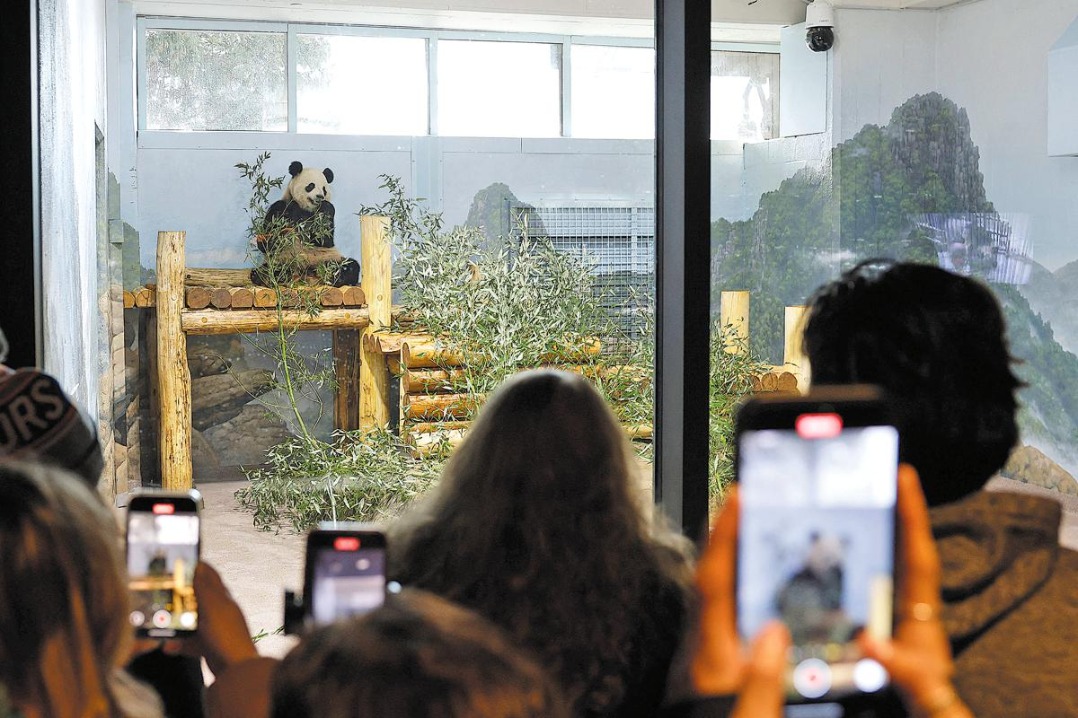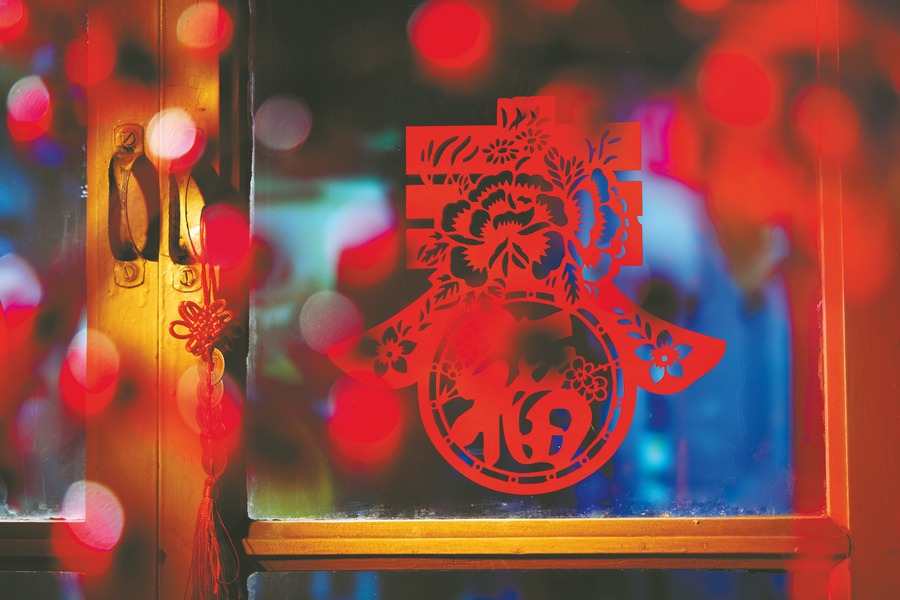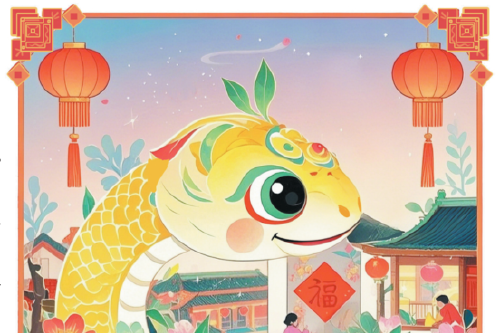Renewal, rebirth must mark Year of the Snake


A few days ago, I found myself pondering the generational labels of Generation X (people born between 1965 and 1980), Generation Y (or millennials, born between 1981 and 1996) and Generation Z (born between the mid-1990s and 2010s). I wondered, with "Z" being the last letter of the English alphabet, what comes next?
Even though the birth rate is dropping in much of the world, children are still being born. It is not as if humankind will not reproduce anymore after Gen Z.
If we borrow the animal zodiac to name generations, it would better capture the cyclical nature of life. Imagine generations named Dragon, Tiger, Rabbit or Rooster. But wait a minute. Would anyone want to be part of "Generation Snake"?
In Chinese culture, snakes are often associated with cruelty, as described in sayings like "the heart of a snake" or being "cold-blooded as a snake". Similarly, in Western traditions, the snake's stealth and venom evoke images of deceit and danger, as reflected in stories like the serpent in the Garden of Eden or J?rmungandr, the serpent or "great beast" of Norse mythology.
Having lived in western Texas for many years, I have had my share of encounters with rattlesnakes. Fortunately, none of those encounters ended in an attack or death on either side. Sweetwater, Texas, hosts an annual Rattlesnake Roundup that celebrates the Western diamondback rattlesnake. Originally begun in 1958 as a rattlesnake population control effort, the event now attracts thousands of visitors, featuring snake-handling demonstrations, hunting, and the dramatic sight of pits filled with writhing snakes — a scene that conjures images of Laoco?n's legendary struggle with serpents.
However, the symbolism of snakes is multifaceted, transcending fear and cruelty. Across cultures, snakes embody mysticism, hidden knowledge and spiritual energy. In kundalini yoga, "coiled snake" in Sanskrit, means the energy that rests, often dormant, coiled at the base of the spine. When it rises or awakens, it causes a number of experiences, which can be good.
In Japan, sacred white snakes are revered as protectors. In Chinese culture, the snake is also linked to the dragon, a favored symbol of power, and the Year of the Snake is affectionately called the "Junior Dragon Year".
The dual symbolism — creation and destruction, life and death -makes the snake a bridge between opposing forces. Even at the Rattlesnake Roundup in Texas, I learned that venom harvested from rattlesnakes is used to treat snakebites, hypertension and vascular or renal diseases. The snake's association with medicine extends back over 2,400 years to Asclepius, the ancient Greek god of healing. The staff entwined with a single snake, known as the Rod of Asclepius, is a symbol of medicine and healing to this day.
Similarly, the Old Testament recounts how Moses was instructed to turn a pole into a bronze serpent, which healed those who looked upon it. The American Medical Association incorporated this emblem into its logo over a century ago. As Chinese New Year begins, we ought to reflect on the snake's enduring link to healthcare and healing, which might encourage us to prioritize both scientific innovation and compassionate care.
Having seen my 96-year-old mom age, I have become increasingly aware of the social aspects of healthcare. Humans thrive in caring communities and suffer when they are surrounded by people with "hearts of snakes" or "hearts of scorpions". Healthcare goes beyond medical treatment; it is also about what one eats, drinks and inhales. According to the World Health Organization, social determinants of health -factors such as economic stability, education, neighborhood conditions and social relationships- play a significant role in shaping health outcomes.
These determinants often have a greater impact than medical interventions on people, influencing access to nutritious food, a safe environment and quality healthcare. Addressing these challenges requires equitable policies, community-based intervention and accountability. As we tackle these systemic issues, we must also guard against the "snakes in the grass" — people who prioritize profit over responsibility and evade accountability.
With falling birth rates, much of the world — including China, the United States and many European countries — faces the challenge of an aging population and shrinking workforce, jeopardizing social security systems. Snakes, however, are often associated with fertility and life-giving forces in many cultures, such as African myths, Native American rain rituals and Hindu traditions. May the younger generation rediscover the blessings of having children, rather than seeing them solely as a burden. Let's not treat parenthood as something to avoid, as if there's a "snake in my boot".
As we enter a new year, may we emulate the snake's ability to shed its old skin, and embrace transformation and renewal. Across cultures, the snake symbolizes the cycles of life, rebirth and immortality, inspiring us to pursue fresh starts and take up meaningful endeavors.
Healing. Fertility. Renewal. Perhaps it is not such a bad idea to have a "Generation Snake" after all. Wishing you a happy and transformative Year of the Snake!
The author is a writer based in Texas, US. The views don't necessarily represent those of China Daily.
If you have a specific expertise, or would like to share your thought about our stories, then send us your writings at opinion@chinadaily.com.cn, and comment@chinadaily.com.cn.
































